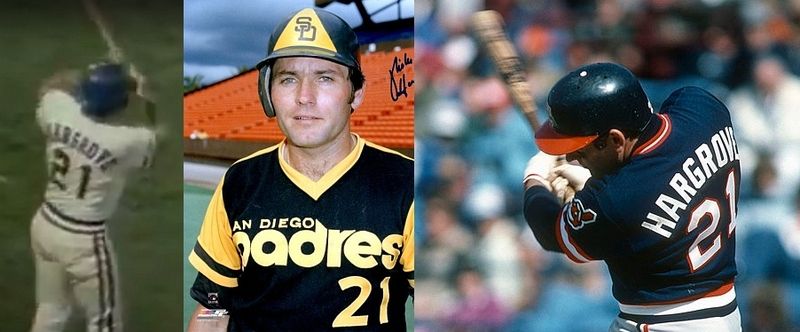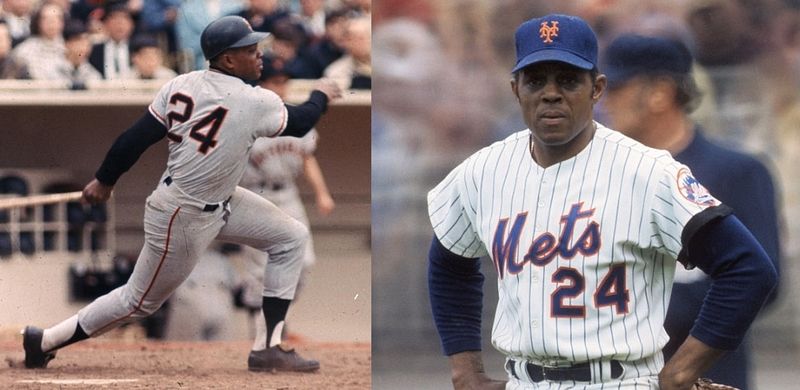The vast majority of players drafted in baseball never make it to the majors, and some choose not to play professional baseball at all. But of those late-rounders who ended up signing with the teams that drafted them, which ones actually defied the odds and made it to the big leagues?
That was the question on my mind when I compiled the following list. I went year by year to find out who the lowest drafted signee to make the majors was. There are some cases where a future major leaguer was drafted later than the player on the list, but he's disqualified because he didn't sign that year.
| Name | Team | Round | WAR | |
|---|---|---|---|---|
| 1965 | Otis Thornton | Astros | 68 | -0.2 |
| 1966 | Rusty Torres | Yankees | 54 | -0.5 |
| 1967 | Roger Hambright | Yankees | 67 | 0.0 |
| 1968 | Tim Plodinec | Cardinals | 33 | -0.1 |
| 1969 | Al Cowens | Royals | 75 | 15.3 |
| 1970 | Bake McBride | Cardinals | 37 | 22.7 |
| 1971 | Keith Hernandez | Cardinals | 42 | 60.4 |
| 1972 | Butch Alberts | Pirates | 28 | -0.1 |
| 1973 | Eric Rasmussen | Cardinals | 32 | 5.1 |
| 1974 | Bobby Cuellar | Rangers | 29 | 0.2 |
| 1975 | LaRue Washington | Rangers | 23 | -0.2 |
| 1976 | Jay Howell | Reds | 31 | 15.0 |
| 1977 | Neil Fiala | Cardinals | 32 | 0.0 |
| 1978 | Vance Law | Pirates | 39 | 10.6 |
| 1979 | Joel Skinner | Pirates | 37 | 0.0 |
| 1980 | Walt Terrell | Rangers | 33 | 10.7 |
| 1981 | Glen Cook | Rangers | 24 | -1.2 |
| 1982 | Mike York | Yankees | 40 | -0.7 |
| 1983 | Joe Klink | Mets | 36 | 0.6 |
| 1984 | Tom Gilles | Yankees | 47 | 0.0 |
| 1985 | Rico Rossy | Orioles | 33 | 1.4 |
| 1986 | Doug Linton | Blue Jays | 43 | -0.7 |
| 1987 | Jeff Conine | Royals | 58 | 19.5 |
| 1988 | Mike Piazza | Dodgers | 62 | 59.6 |
| 1989 | Mike Garcia | Tigers | 55 | -0.6 |
| 1990 | Danny Young | Astros | 83 | -0.4 |
| 1991 | Charles Gipson | Mariners | 63 | 0.8 |
| 1992 | Anthony Chavez | Angels | 50 | 0.4 |
| 1993 | Jason Maxwell | Cubs | 74 | -0.1 |
| 1994 | Jose Santiago | Royals | 70 | 1.2 |
| 1995 | Gabe Kapler | Tigers | 57 | 8.7 |
| 1996 | Travis Phelps | Devil Rays | 89 | 0.8 |
| 1997 | Orlando Hudson | Blue Jays | 43 | 30.9 |
| 1998 | Scott Atchison | Mariners | 49 | 3.5 |
| 1999 | Jason Botts | Rangers | 46 | 0.3 |
| 2000 | Anthony Ferrari | Expos | 44 | 0.0 |
As one quickly observes via the WAR column, most of these guys didn't have very noteworthy careers. Only eleven finished their careers with more than five wins above replacement, as many as finished with a negative value. Still, you have to hand it to these guys, proving every doubter wrong and outplaying the apparent better choices. One of them, Mike Piazza, is even in the Hall of Fame, and the WAR leader is Keith Hernandez, who has a good case of his own.
I stopped the list at 2000 because I wanted to give any late-drafted guys who might have a late-career major league debut a chance to get to the Show. I may update this thing in the future.
Since this'll probably be my last post of the year, I want to wish everyone a Merry Christmas!





